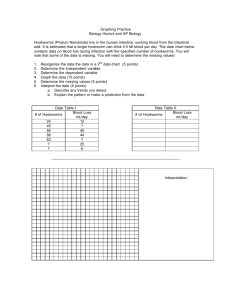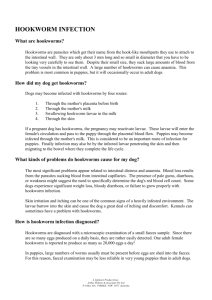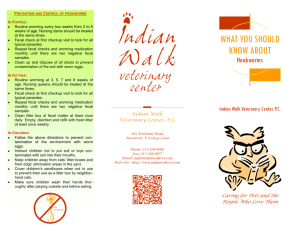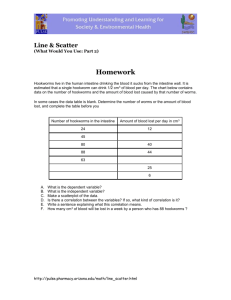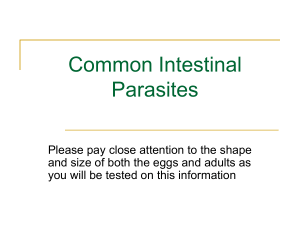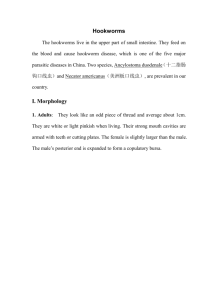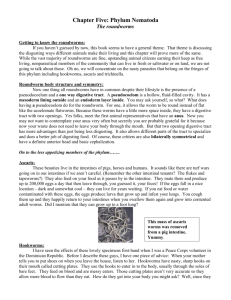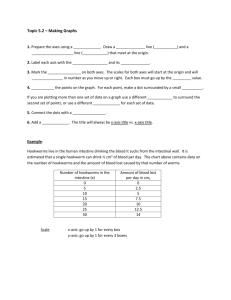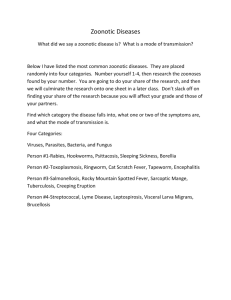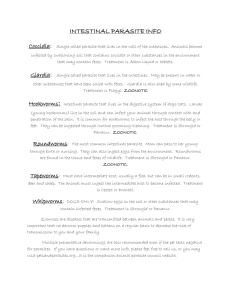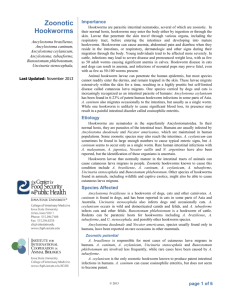Hookworms
advertisement
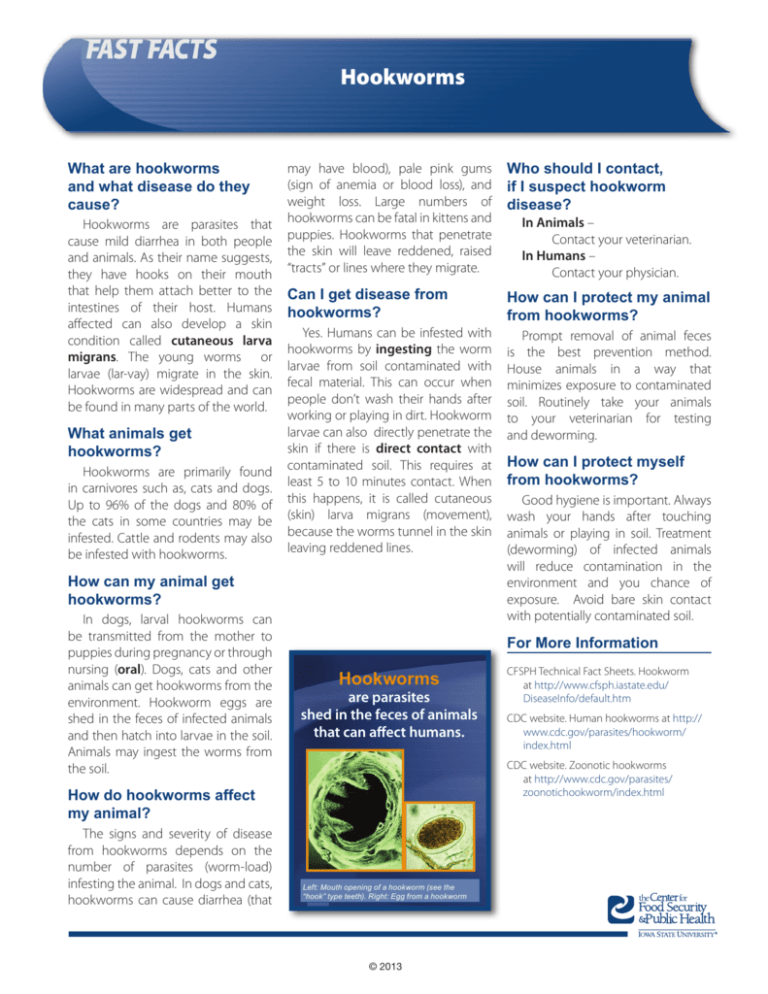
Hookworms What are hookworms and what disease do they cause? Hookworms are parasites that cause mild diarrhea in both people and animals. As their name suggests, they have hooks on their mouth that help them attach better to the intestines of their host. Humans affected can also develop a skin condition called cutaneous larva migrans. The young worms or larvae (lar-vay) migrate in the skin. Hookworms are widespread and can be found in many parts of the world. What animals get hookworms? Hookworms are primarily found in carnivores such as, cats and dogs. Up to 96% of the dogs and 80% of the cats in some countries may be infested. Cattle and rodents may also be infested with hookworms. may have blood), pale pink gums (sign of anemia or blood loss), and weight loss. Large numbers of hookworms can be fatal in kittens and puppies. Hookworms that penetrate the skin will leave reddened, raised “tracts” or lines where they migrate. Who should I contact, if I suspect hookworm disease? Can I get disease from hookworms? How can I protect my animal from hookworms? Yes. Humans can be infested with hookworms by ingesting the worm larvae from soil contaminated with fecal material. This can occur when people don’t wash their hands after working or playing in dirt. Hookworm larvae can also directly penetrate the skin if there is direct contact with contaminated soil. This requires at least 5 to 10 minutes contact. When this happens, it is called cutaneous (skin) larva migrans (movement), because the worms tunnel in the skin leaving reddened lines. How can my animal get hookworms? In dogs, larval hookworms can be transmitted from the mother to puppies during pregnancy or through nursing (oral). Dogs, cats and other animals can get hookworms from the environment. Hookworm eggs are shed in the feces of infected animals and then hatch into larvae in the soil. Animals may ingest the worms from the soil. Prompt removal of animal feces is the best prevention method. House animals in a way that minimizes exposure to contaminated soil. Routinely take your animals to your veterinarian for testing and deworming. How can I protect myself from hookworms? Good hygiene is important. Always wash your hands after touching animals or playing in soil. Treatment (deworming) of infected animals will reduce contamination in the environment and you chance of exposure. Avoid bare skin contact with potentially contaminated soil. For More Information Hookworms are parasites shed in the feces of animals that can affect humans. CFSPH Technical Fact Sheets. Hookworm at http://www.cfsph.iastate.edu/ DiseaseInfo/default.htm CDC website. Human hookworms at http:// www.cdc.gov/parasites/hookworm/ index.html CDC website. Zoonotic hookworms at http://www.cdc.gov/parasites/ zoonotichookworm/index.html How do hookworms affect my animal? The signs and severity of disease from hookworms depends on the number of parasites (worm-load) infesting the animal. In dogs and cats, hookworms can cause diarrhea (that In Animals – Contact your veterinarian. In Humans – Contact your physician. Left: Mouth opening of a hookworm (see the “hook” type teeth). Right: Egg from a hookworm © 2013
